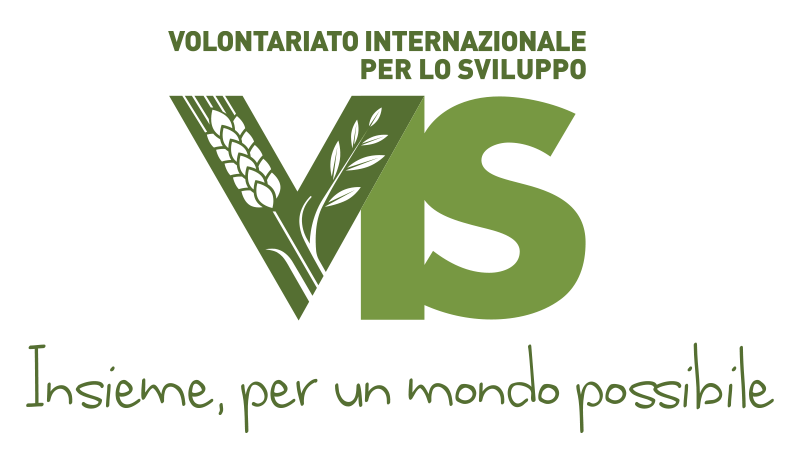VIS action worldwide
We operate in 24 countries in favour of children and youth in situations of vulnerability and disadvantage.
Characteristics of our interventions
VIS is active in many countries through development projects, emergency projects, Long-distance support (SAD) and Support to Salesian Missions (SaM).
Interventions are aimed at promoting the development and expansion of the capacities of each person and community, with a specific focus on girls, boys, adolescents, and young people in vulnerable and disadvantaged conditions.
Cross-cutting factors of such interventions are: the HRBA – Human Rights Based Approach which we try to apply in drafting, implementation and evaluation of interventions; the capacity and institutional building activities, with the aim of “enabling and empowering” the actors and recipients involved in the initiatives; the attention to innovation and added value factors, so as to design actions open to change and capable to satisfy the identified needs a more effective and sustainable way.
Development projects are at the heart of VIS work. They can be defined as a series of interrelated activities, carried out to attain concrete results for the achievement of a specific development objective and to produce a useful and positive change in the life of the recipients.
The characteristics of VIS development projects are:
- presence of its own operators and expatriate volunteers;
- structured collaboration with local partners, in most cases represented by the Salesian missionary communities;
- type of the actions recipients: mostly children, adolescents, and young people, considered active subjects, rights holders and not (only) of needs.
VIS projects sectoral thematic priorities are:
- education, training, and job placement
- migration
- protection
- strengthening of civil society actors
- economic local development
VIS is an NGO dealing mainly with development.
However, where development projects are under implementation or in contexts with high grounding of our local partners, in front of unexpected and dramatic situations – such as a drought and resulting famine, an earthquake or a flood, a post-conflict situation – VIS also intervenes through emergency projects. In such cases, the perspective of the intervention is oriented towards saving human lives and at the same time laying the foundations for restarting a development process to stimulate resilience and a potential return to normality.
Indeed, a feature of VIS planning even in face of an emergency is the medium-long term perspective. After having contributed to the first emergency and the re-establishment of “normal” living conditions, the planning perspective looks to the future of the communities involved: it is within this context that VIS operates through interventions aimed at rehabilitation, reconstruction and subsequently development.
Based on this approach, over the years VIS has faced numerous humanitarian emergencies including: the refugees fleeing war-ravaged Kosovo in 1999; the enormous consequences of the tsunami in Southeast Asia of 26 December 2004; the emergencies caused by disasters in Angola, Bangladesh, Chile, Haiti, Nepal, Pakistan, Peru, Senegal; the crises deriving from the ongoing conflicts in North Kivu, in the Democratic Republic of Congo; the periodic famines and droughts in Ethiopia and the humanitarian crises in Palestine and Lebanon.
VIS, based on such experience has obtained the accreditation as partner of the European Civil Protection and Humanitarian Aid Operation – ECHO.
The Long-distance support (SaD) it is an intervention method allowing the continuous support for girls, boys, adolescents, and young people living in conditions of poverty and vulnerability in a country where VIS and/or the Salesian Family are present thanks to the periodic donations of many people who live in Italy and are supportive, albeit at a distance.
VIS offers a Long-distance support for entire groups of recipients rather than an adoption of individual children but of communities that can also include children in street situations, orphaned or abandoned minors, ” sorcerer girls and boys”, former child soldiers, girls and young women victims of violence, etc.
The areas of intervention are: care and aid (offer of meals, clothing, medicines and other basic necessities, provision of sanitation services, residential reception in real homes); education and training (schools at all levels, vocational training centres, recreational, artistic and sporting activities, psycho-pedagogical support) and socio-family integration (through the work of psychologists and social workers with families of origin, contacts with businesses and other activities to promote job placement).
To bring our supporters even closer to SaD projects, an ad hoc website was created VISostengo: a family space for recipients to meet and exchange with those who contribute to the missions and financially support them from here.
The Support to Missions (SaM) is the tool specifically dedicated by VIS to the social and missionary engagement of the Salesians in the world.
It consists of the donations received by VIS and intended exclusively for a missionary community at the express request of the donor, based on a direct and trust relationship existing between the donor and the final recipient (the single missionary and/or the community within which he operates).
With SaM VIS hence plays a role of “link” between the donor and the recipient, remaining the only referent for the implementation of the activities foreseen in loco and the sole warrant of the outputs obtained. VIS implements the secretarial and administrative procedures necessary for sending these moneys to the countries involved in addition to the periodic monitoring of the use of funds.
These offerings are mainly utilized by the missionaries to cover the running costs of schools, vocational training centers, oratories and youth centers, for reception, support and care activities (food, cloths, health, consumables and educational materials…) of specific groups (e.g. children in street situation, organed minors, single mothers…) as well as training activities.
24
Countries where we are active
67
International cooperation projects
276
Development operator and local staff
600.000
Recipients reached
Sectoral thematic and emergency priorities
VIS interventions split up into the following sectoral thematic priorities:

Training and job placement
Promote the socio-professional inclusion of the segments of population in vulnerability situations, in particular youth and women, as a means for sustainable development of people, communities, and environment.

Migration
Offer through a human rights-based approach answers to the crises obliging people to migrate and creating the opportunity for emancipation in the countries of origin and of integration in Italy and Europe.

Protection
Contribute to prevention and reduction of exposure to risks of various nature of people in vulnerability situations including their families and communities, guaranteeing the protection, promotion, and full and effective enjoyment of human rights.

Strengthening of civil society actors
Promote and support competences and capacity of local CSOs and institutions to act as actors of sustainable development.

Local economic development
Promote local economic development processes that are sustainable from a social, environmental, cultural, and economic-financial point of view, especially for women and young people.

Emergency
Humanitarian aid together with the support and development of the resilience of the most fragile communities, affected by natural health disasters and/or consequences of conflicts.
Support our projects in the world
To continue to stand beside children and youth in poverty and disadvantaged situations
